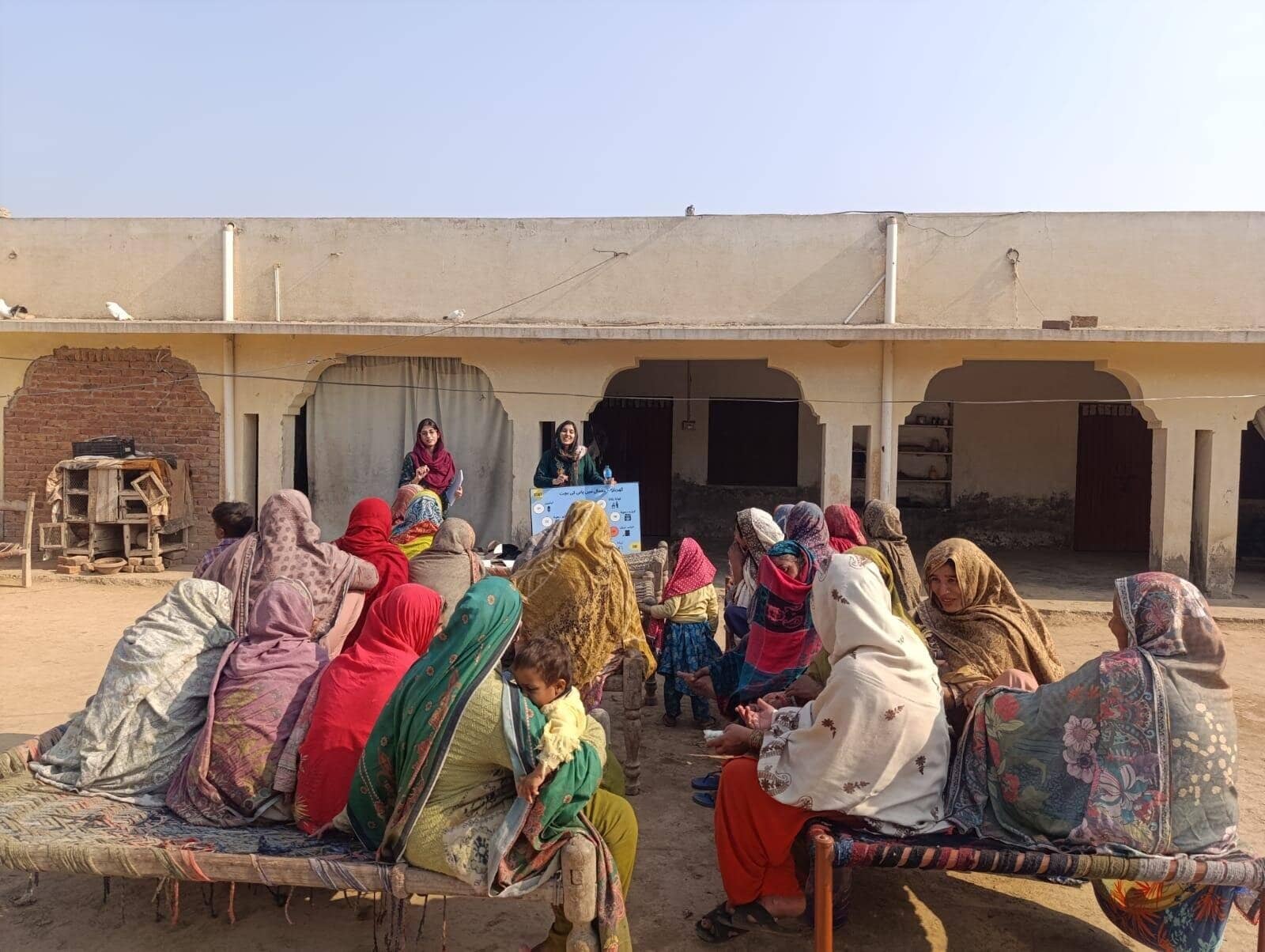By Fatima Mushtaq and Sabiha Ibrahim

Pakistan, despite being an agricultural country, faces significant challenges in its farming sector, particularly in water management. This issue is especially pressing in rural areas where access to clean drinking water is also a daily struggle. Sustainable water management is an urgent need requiring awareness raising as well as practical and affordable solutions. The International Water Management Institute taught women and girls in a farming community in Tehsil Renala Khurd in District Okara, Punjab simple ways to conserve water at home and in the field.
Most villagers lacked access to safe drinking water. Without proper filtration systems, they had to buy drinking water from private filters located far away. The IWMI team conducted a game-based activity where farmers learned simple techniques to conserve water in their daily lives. The objective of the game was to promote efficient water use, where participants were asked the water usage for daily tasks like toilet flushing, hand washing, cooking, and laundry. They also identified water-saving or wastage in terms of three hurdles like faulty taps, tanks and broken pipes. Participants highlighted:
- Efficient water usage for tasks like toilet flushing, face and hand washing, dishwashing, and cooking, with minimal water consumption.
- Unlimited water usage for house cleaning, laundry, and 20 bottles for bathing indicating areas for improvement in household water conservation.
- Water waste due to faulty taps and faulty tanks, highlighting the need for immediate repairs to prevent water loss.
IWMI together with participants established the link between water conservation at home and on the farm.
IWMI also introduced the Chameleon Soil Moisture Sensor, an innovative yet affordable tool designed to optimize irrigation practices. The sensor provides real-time soil moisture data, helping farmers to determine when and how much water their crops need.
Traditionally, farmers irrigate fields based on fixed schedules or visual assumptions, which often leads to over-watering or under-watering. Both practices harm crop health—over-irrigation can waterlog fields and reduce yields, while under-irrigation stresses crops. By using soil moisture sensors, farmers can avoid these issues, conserve water, and boost crop productivity.
The benefits of using these sensors include:
- Water conservation: Significant water savings by avoiding unnecessary irrigation.
- Increased crop yield: Ensuring crops get the right amount of water at the right time.
- Cost-effectiveness: Reduced water usage leads to lower input costs.
Importantly, the sensors are affordable and easy to use, making them an ideal solution for small-scale farmers.
Knowledge and the correct tools are critical for addressing equitable access to water, key aspects of IWMI’s work in Pakistan. As for the farmers of Okara, many are now adopting water saving practices and serving as role models for their peers. By working together, they are proving that even the most pressing challenges can be overcome, creating a better, more sustainable future for themselves and their communities.



